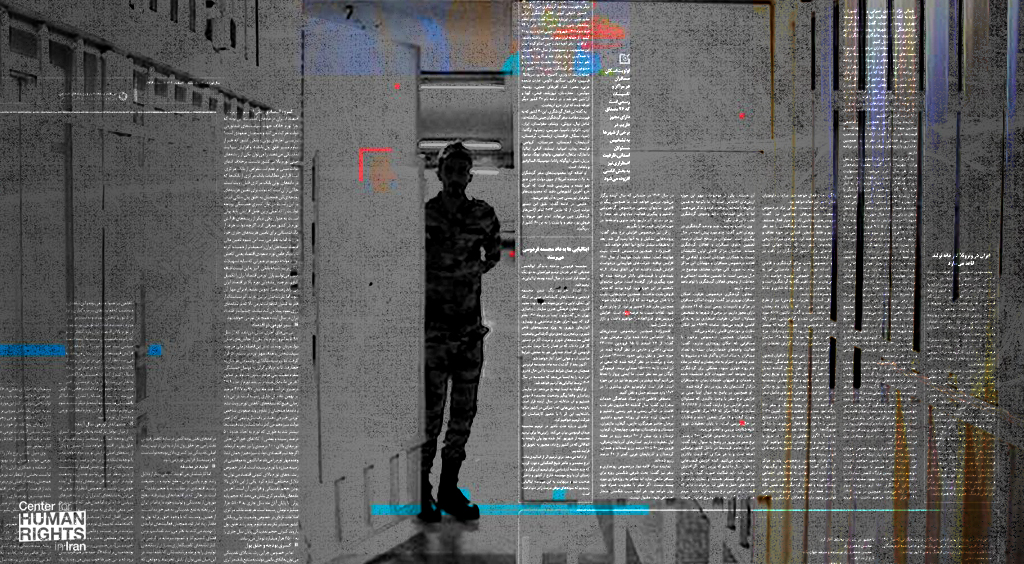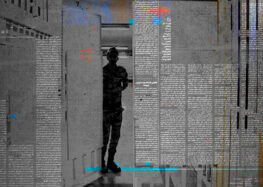Journalists Denied Release from Prison Amid Supreme Leader’s “Pardon” PR Ploy

More than a month has passed since the Iranian government issued a “pardon” for an unverified number of prisoners and detainees following the arrests of tens of thousands of people across the country amid anti-state protests that began in September 2022.
As CHRI has noted, the announced pardons and sentence reductions are a political ploy aimed at covering up vast and blatant violations of human rights since the protests began.
By law, the Islamic Republic’s supreme leader can only pardon those who have been convicted. However, in this case, extending the pardon to detainees presumes they were guilty of crimes for which they were never convicted. The so-called “pardon” is thus a political ploy designed to give the impression that the supreme leader is being merciful toward those who allegedly committed crimes.
Dozens of journalists were among those arrested and at least 17 remained in detention at the time of this writing for either refusing to comply with the pardon’s conditions, including signing false statements attesting to wrongdoing, or because they were inexplicably denied a pardon.
“Dozens of journalists and media workers have again received summons after the pardon,” Asal Mohammadi, a Gam newspaper editorial board member told CHRI. “They are generally those who carried out protests and sit-ins while in prison.”
“Many female journalists sang the national anthem and removed their hijab after being released, and had supported the protests by issuing statements and organizing sit-ins in prison,” added Mohammadi.
Mohammadi, a former political prisoner herself, is married to labor affairs reporter Hirad Pirbodaghi, also a member of the Gam magazine’s editorial board, who was in detention for more than six months, serving a sentence of four years and eight months for assembly and collusion against national security until he was released on March 20, 2023.
Not all journalists have been released.
The following journalists and media workers who were arrested between September 2022 and March 2023 remained in jail or detention in Iran as of the time of this writing:
1- Niloufar Hamedi, Tehran
2- Elaheh Mohammadi, Tehran
3- Vida Rabbani, Tehran
4- Alireza Jabbari, Tehran
5- Maliheh Daraki, Shiraz
6- Pouria Mahdavi Moghaddam, Boroujerd
7- Farkhondeh Ashoori, Shiraz
8- Vahdi Shademan, Qasre Shirin
9- Afshin Gholami, Bukan
10- Maral Darafarin, Lahijan
11- Esfandiar Fathi, Borazjan
12- Davood Davoodi, Genaveh
13- Hassan Yazdi, Isfahan
14- Tayebeh Sadat Mirhosseini, Behshahr
15- Melika Hashemi, Tehran
16- Mehdi Mohtadi, Bukan
17- Ali Pourtabatabaie, Qom
Niloofar Hamedi and Elahe Mohammadi
Female journalists Niloofar Hamedi (Shargh newspaper in Tehran) and Elahe Mohammadi (Ham-Mihan newspaper in Tehran) were detained in September 2022 for reporting on the death of Jina Mahsa Amini, 22, in Iranian state custody just days after she was arrested for her alleged improper hijab. Amini’s death sparked months of anti-state protests.
They are among arbitrarily detained journalists who were inexplicably excluded from the so-called mass “pardon.”
In a statement filled with unsubstantiated claims, the Intelligence Ministry and the Islamic Revolutionary Guard Corps’ intelligence organization issued a joint statement on October 28, 2022, claiming that Hamedi and Mohammadi were “foreign agents” engaged in “multi-dimensional wars” organized by “Western and Zionist intelligence agencies… to carry out serious and uninterrupted planning with the aim of influencing different social layers, especially in areas related to women.”
The statement incorrectly claimed that Hamedi, 30, had published a photo of Mahsa Jina Amini in a hospital bed that went viral on social media networks. Yet Hamedi never tweeted a photo of Amini in a hospital bed; she had only tweeted a photo of Mahsa’s parents embracing in the hospital.
Regardless, it remains unclear how tweeting a photo proves you were engaged in “multi-dimensional wars.”
The two are held in Gharchak Prison south of Tehran, which is known for its inhumane living conditions.
More than 200 journalists inside Iran have called for their release noting that the pardon was supposed to be applied to all prisoners “except those with a private complainant.”
CHRI has learned that while Hamedi and Mohammadi do not have private complaints filed against them, they have not been offered conditional or unconditional pardons.
No further information is available about their cases.
Maryam Vahidian, a journalist who was arrested on November 27, 2022, and released on December 28, is among several journalists who could be arbitrarily detained again.
In an interview with the Shargh newspaper in March 2023, Vahidian said, “Although there have been reports of the closure of the cases against those detained since September [2022], during my visit to the prosecutor’s office, I realized that my case would not be subject to the recent pardon and that the investigator, after receiving the final defense, will refer the case to the Revolutionary Court.”
Vahedian was detained for more than a month on charges of “assembly and collusion to commit a crime.”
The so-called “pardon” was also applied to journalists who were imprisoned before the mass arrests of 2022. However, CHRI has been informed that some who were recently released were again summoned to court within a few months.
Alieh Motalebzadeh, a photojournalist, started a three-year prison sentence issued against her by a kangaroo court on charges of “assembly and collusion against national security” and “propaganda against the state” in October 2020. She was released on February 9, 2023, after the pardon was issued.
Yet on March 6, 2023, she posted a copy of her summons on her Instagram page and wrote that she had been summoned to court again: “It has been 25 days since my release, and during this time I have received two notifications to appear at the Evin Courthouse. The first one was for March 14th, and the second, which was delivered last night, gave me five days to make an appearance.”
Motalebzadeh said no information was provided about any charges.
New Arrests and Denied Pardons
Journalists and photographers including Nasim Soltanbeigi, Aria Jafari, Saeideh Shafiei, and Ehsan Pirbornash were released on bail, CHRI has confirmed.
Meanwhile, some journalists including Maryam Shakrani and Afshin Amirshahi saw their charges dropped and were freed.
However, several other journalists’ cases remain in limbo, with new charges looming against them.
Vida Rabbani was tried in two separate cases in 2022.
In the first, which was heard in June 2022 before the protests began, she was issued a three-year prison sentence and a suspended two-year prison sentence on charges of “insulting the sacred” for publishing a poem by an Afghan poet in which a prayer is compared to a kiss.
Rabbani remained at home because the sentence had not yet been enforced. Then, on September 23, 2022, she was arrested along with her husband at their residence amid protests in their hometown of Tehran.
After weeks of being interrogated without access to counsel in Evin Prison’s Ward 209, which is controlled by the Intelligence Ministry, she was transferred to Gharchak Prison and then back again to Evin.
Rabbani’s husband, journalist Hamidreza Amiri, is also being prosecuted on unspecified national security charges.
Saman Ghazali, a journalist and environmental activist, was arrested on September 25, 2022, following protests in Mahabad, West Azerbaijan province, and later transferred to the Central Prison in Oroumiyeh.
Ghazali has been denied a pardon.
He was arrested for providing a brief interview to Deutsche Welle’s Persian news service regarding protests in Kurdish-populated cities.
Previously, Ghazali served nine months in prison on the charge of “propaganda against the state” and was released in June 2021.
Jabbar Dastbaz, from Divandarreh, Kurdistan province, was also denied a pardon.
The Hengaw Kurdish human rights organization reported that Dastbaz was severely beaten and abducted by security forces on September 22, 2022, in the city of Sanandaj.
Dastbaz is a well-known civil society activist who in recent years has published field reports on human rights issues regarding landmine victims, female victims of domestic violence, and border couriers (referred to as “kulbar”). He has been summoned and threatened by security agencies on several occasions.
In 2012, the government banned Dastbaz from continuing his studies at the University of Saqqez despite his official acceptance into the university’s graduate program in political science.
Ali Pourtabatabaie, one of the administrators of the Qom News website, was arrested on March 5 after reporting about chemical gas attacks on girls’ schools in Iran.
He was one of the first Iranian journalists to report on the poisonings at schools in the city of Qom and demanded answers from relevant authorities.
The judiciary has not provided any official explanation for his arrest and there is no other available information about his case status. He is held in the Qom central prison.






